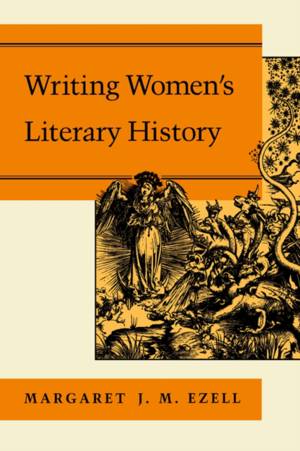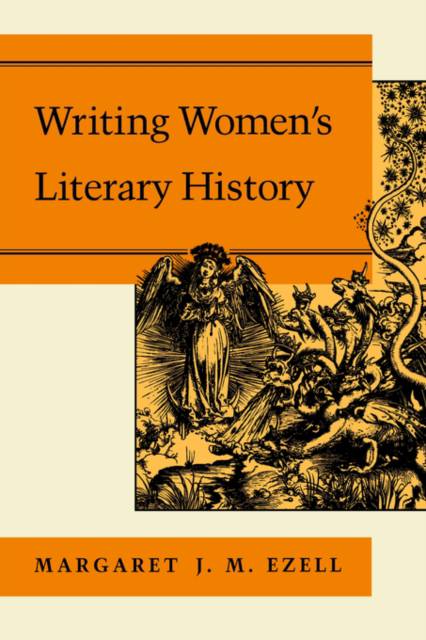
- Afhalen na 1 uur in een winkel met voorraad
- Gratis thuislevering in België vanaf € 30
- Ruim aanbod met 7 miljoen producten
- Afhalen na 1 uur in een winkel met voorraad
- Gratis thuislevering in België vanaf € 30
- Ruim aanbod met 7 miljoen producten
Omschrijving
Ezell critically examines these successful women's literary histories and applies to them the same self-conscious feminism that critics have applied to more traditional methods. Drawing both on French feminisms and on recent historicist scholarship, Ezell points us to new possibilities for the recovery of early modern women's literary history.
By championing the recovery of "lost" women writers and insisting on reevaluating the past, women's studies and feminist theory have effected dramatic changes in the ways English literary history is written and taught. In Writing Women's Literary History, Margaret Ezell critically examines these successful women's literary histories and applies to them the same self-conscious feminism that critics have applied to more traditional methods. According to Ezell, by relying not only on past male scholarship but also on inherited notions of "tradition," some feminist historicists replicate the evolutionary, narrative model of history that originally marginalized women who wrote before 1700. Drawing both on French feminisms and on recent historicist scholarship, Ezell points us to new possibilities for the recovery of early modern women's literary history.
Specificaties
Betrokkenen
- Auteur(s):
- Uitgeverij:
Inhoud
- Aantal bladzijden:
- 216
- Taal:
- Engels
Eigenschappen
- Productcode (EAN):
- 9780801855085
- Verschijningsdatum:
- 8/11/1996
- Uitvoering:
- Paperback
- Formaat:
- Trade paperback (VS)
- Afmetingen:
- 153 mm x 229 mm
- Gewicht:
- 390 g

Alleen bij Standaard Boekhandel
Beoordelingen
We publiceren alleen reviews die voldoen aan de voorwaarden voor reviews. Bekijk onze voorwaarden voor reviews.











